Fasting to Raise Vibration, Expand Consciousness AND THRIVE!
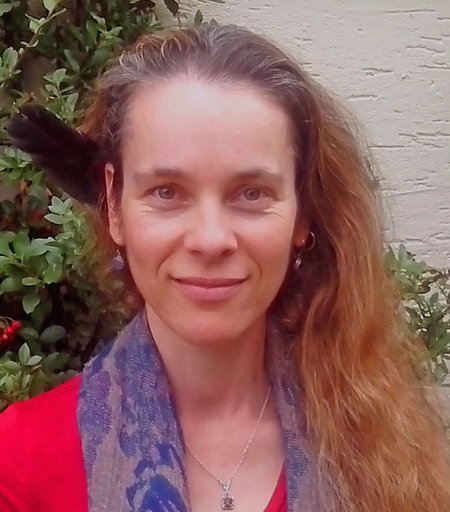
Today we're beginning a new forum thread in our Conscious Cafe exploring the power of fasting to raise vibration, expand consciousness and positively thrive in your life. In this lead post, I'm focussing on understanding the nature of fasting and how it relates to spiritual growth. Do feel free to ask questions and share.
Aspasia - Openhand Community Coordinator
Fast and see the strength of the Spirit reveal itself
Fasting is the first principle of medicine;
fast and see the strength of the Spirit reveal itself.
Rumi
It is that time of the year when a lot of people tend to embark on some type of ‘Spring cleanse’ protocol, either to feel lighter, or to feel more energetic or to deal with mild health issues. A couple of people I know are reporting on facebook about their journey with their chosen cleanse method sharing how much weight they have lost and how good they feel. Also, here on Openhandweb, ‘detox & rejuvenation fast’ was a hot topic back in 2007 when Open documented his 5-day cleanse regime. The topic was revisited again in 2013 and 2015 offering loads of info and graphic details on his 5-day protocol, which eliminated mucqoid plaque very effectively! Its really worth having a look here:
Open's detox and rejuvenation fast
My personal experiences with some ‘cleansing’ diet protocols have included water fasting, intermittent fasting, mono-fruit cleanses, raw food detox, and juicing. Whilst exploring all these, I discovered that there are differences between a ‘detox’ diet, a ‘cleanse’ and a ‘fast’. For example, it is suggested that:
A ‘fast’: is the complete abstinence from food for 12 hours or more where only water is consumed – distilled or pure water strongly suggested and preferably in room temperature. Fasting is a natural dietary process that has existed in many cultures and traditions for millennia to treat health issues and to facilitate spiritual practice.
A ‘detox’: uses certain foods or/and herbal supplements to facilitate the natural process of elimination of toxins in the body (toxic substances from processed foods, pollutants, acidic foods etc) through the liver and kidneys. Often a detox is accompanied with enemas, tongue & nose cleanse, steam & saunas for more effectiveness.
A ‘cleanse’: involves the clearing and rebooting of the digestive system and detoxification organs in the body, while re-fuelling with optimum amount and quality of nutrients. Cleanse diets eliminate certain ‘trigger’ foods and add alkaline rich plant foods that regenerate the body cells.
“Back to the future” for Openhand, and I felt to invite attention and explorative discussion specifically to Fasting for better physical and mental health, for breaking addictions and for facilitating the unfolding and ‘burning’ of karmic processes. Fasting is an inherently natural response to food shortages, which we had to make back in the early days of humanity. We learnt to adapt as a way to survive, though I feel today fasting is a necessary response to ‘survive’ the effects of overconsumption, ingested pollutants and internalised toxicity in the environments we now live. Fasting as an ancient medical intervention in the modern world is becoming very popular and private medical health centres dedicated to fasting spring up all around the world. Scientific study on fasting protocols in humans is increasing and what many ancient cultures practised for centuries is now increasingly being backed up by research for its many health benefits and impressive physiological adaptations.
Autophagy - a natural process of the body to cleanse and repair itself
Autophagy is one of the key adaptations that take place during fasting - a natural process of the body to cleanse and repair itself - that does not happen when eating is involved. Autophagy (derived from Greek, meaning ‘eating oneself’) is basically a self-recycling process that breaks down and disintegrates cells to create new ones.
The Science section on The Telegraph online reported recently:
The researchers say fasting "flips a regenerative switch" which prompts stem cells to create brand new white blood cells, essentially regenerating the entire immune system. "It gives the 'OK' for stem cells to go ahead and begin proliferating and rebuild the entire system," said Prof Valter Longo, Professor of Gerontology and the Biological Sciences at the University of California. "And the good news is that the body got rid of the parts of the system that might be damaged or old, the inefficient parts, during the fasting.”
Dr Eric Berg ‘s video below on the physiological processes involved in Autophagy is simple, accessible and very informative, last about 4 minutes – have a look:
The amazing thing is that Autophagy is a process that takes place on the karmic level too. It is well documented in ‘spiritual’ circles that fasting ‘burns karma’. One often experiences increased sensitivity to energies and also deeper Samadhi states when combining fasting and meditation and as a result the surfacing of deep-seated emotional conditioning is accelerated.
(To understand the deep spiritual state of "Samadhi", watch this Openhand video)
With increased clarity, strength of Mind and expansive awareness, karmic conditioning is felt through and moved more rapidly. When I used to do 10-day retreats with 11-12 hour meditation practice, I would have one small meal at 11 am and the rest of the time I drank only water. The fasting intensified the already intense meditation practice and I experienced the rapid purging of conditionings through the mind (in dreams and mental energy), through the emotional body and also the physical (pain, tightness, flu symptoms). At the end of the 10 days, I would feel immense expansiveness, presence, lightness and peace.
Ways to Fast and the benefits
Fasting involves abstaining from food and drinking only - as clean as possible/ideally distilled - water for at least 12 hours. Fasting protocols include drinking only water for one or more days and Intermittent fasting modalities.
When water is only consumed, full rest is advised and exercise or other stressors better be avoided. Longer fasts may need medical attention, especially if people are on medication.
Intermittent fasting modalities include:
Eating one meal a day and fast the rest of the day.
Eating for 6 or 8 hours and fasting the rest of the time. For example, starting to eat at 11am in the morning and having a last meal at 5pm or starting at 10.00am and having the last meal at 6pm. The eating and fasting windows can be moved according to ones needs and routine.
My personal exploration
Personally, I have tried all of the above protocols and currently, I do intermittent fasting most of the time. If there is a day when my eating window becomes longer for whatever reason, then I will come back to the protocol again the next day. I find this way of long term fasting suitable for my needs and for feeling healthy, vibrant and full of energy. It’s also a way to meet cravings as and when they arise and to process corresponding challenging emotions.
I also have a diet, which is 100% plant based and mostly whole foods (*See note below about the difference I feel there is between being vegan and having a plant diet). As a result, the discomfort that often is experienced with fasting protocols like headaches, excessive tiredness, dizziness etc is very very mild. Experts have reported that the more animal based, processed, sugar/salt and oil based diet one has more withdrawal symptoms of feeling unwell and ill. Similarly with medications. Therefore, to embark on a fast, one may need to first start a cleansing or detox program eliminating ‘trigger’ foods and feeding the body with vibrant plants foods for while.
Wholefood, plant based diet for optimal health, longevity and mental well-being
Dr Klapper, is one of the many medical doctors who advocates a wholefood, plant based diet for optimal health, longevity and mental well-being. He is also the cofounder of a health clinic in the US that offers fasting therapy that can last from a few days to forty. Here is a brilliant informative video where he explains in detail some of the reasons to fast, benefits and how to do it – it's unmissable...
NOTE: Veganism is an awakening.
I wholeheartedly feel and believe that animals are right-deserving subjects/persons just like all humans are. Rather than merely a diet or an individual food ethic, veganism is a stance, which aims at eradicating the myth that animals belong in the consumption narrative. Put differently, eating animals and their bodily excretions is a systemic issue and not one dependent on personal ethics (there are no “bad” people in my books!). Would not allowing a black person to drink from the white man’s fountain be an ethical question or a stance to Rightness/Justice/Harmony? To me, veganism involves an embodied inquiry and a collective/individual karmic clearing process for re-aligning with universal Harmony and Soul and for creating/expressing a New narrative and a New Paradigm of deep Freedom and Love.
Wise love,
Aspasia ![]()
- Add new comment
- 27561 views
Comments
Weaved Kindness is the Key
In reply to My experiences with Intermittent fasting by iamdurga
Comment
Dear Megha,
Your journey with intermittent fasting is indeed very inspiring and also its a beautiful example of how we are all invited to make frameworks/structures like 'fasting' a vehicle for self-exploration rather than 'the goal'. Thank you for sharing and motivating others to explore.
What I find most inspiring is the constant attitude of kindness weaved through the journey of 'fasting' - 'no fasting' and deeply inquiring and learning from/in both contexts.
When feeling discombobulated, I find Nature, aromas, singing and deep breathing grounding. There are so many ways to meditate and touch the immediate experience as it is, in its rawness. Yoga is a beautiful way. :) There is also the possibility of consciously and kindly approaching 'the ungroundness' with curiosity and inquiry - as a portal...
Wise Love <3
Triphala
Comment
Hi Aspasia,
You are welcome. I look forward to hearing how you get on with a 24 hour dry fast. What I also like about this is that your time is not taken up with planning or making any juices, teas or food . It feels as if you have so much more time to spend contemplating, meditating, walking , doing yoga or anything you are drawn to.
On a daily basis ( not on the 24 hour dry fast) I also take Triphala powder in a bit of warm water and add extra Harikati which helps to open the pineal gland. I try to start my day doing kudalini yoga and always break my fast with a freshly squeezed juice. Then one or two hours later I have fruit until about 2pm. :) xx
Re: Triphala and life applicaiton
In reply to Triphala by Lisa in Wonderland
Comment
Thats a lovely routine Lisa, will let you know about the 24h dry fast :) In a couple of weeks :)
Will find out more about Triphala because I havent used it before and give it a go :)
May I ask, how has your routine affected your life in terms of relationships, communications with others and karmic processing? Im interested in how it all translates in our lives particularly when there is challenge.
And on a different note, I find that there are phases I have in life when fasting is not the way to go and allow whatever is there to be as it is but embraced in kind awareness.
Would love to hear/read your take on it.
Thank you xx
Dry fasting continued
Comment
Hi Aspasia,
I started this diet life style mainly to get rid of eczema. I had eczema on one palm for 10 years on and off and on my arms . I started with a 3 day juice detox ( including using lemon water enemas). The food is 80 % plant unprocessed in any way 20 % quinoa, nuts, millet , seaweed and chickpeas. And 80% is raw and 20 % cooked. Intermittent dry fasting 12 to 16 hours daily. And once a week 24 hour dry fast . Drinking hardly any water as you get it from the large quantities of fruit and this can hydrate you more than water.
Within a month the eczema had disappeared and I was glowing and friends were commenting on how well I looked . I felt more grounded and expansive . I also felt calmer.
It's quite easy to dry fast for 24 hours , especially if you start around 2.30pm .
There is more to this and I am hoping for a lot more unravelling and revelations .
Lots of love, Lisa x
Dry fasting combo :-)
In reply to Dry fasting continued by Lisa in Wonderland
Comment
Lisa Thank you,
it brings such a HUGE smile to my face to read that 24h dry fasting, intermittent dry fasting and a wholefoods plants diet (cooked/uncooked) has been such a blessing. What a powerful combination!
I have dried fast within the intermittent protocol but not on a full or more days. I would like to try and see how it feels. I have read about the benefits of dry fasting, so it is really attractive. :)
Thank you for your motivating input :)
Wise Love
Nothing short of phenomenal.
Comment
Great to hear from you Colin. I do know that fasting can greatly constrain and retard the growth of cancer. The way you're approaching the challenege is nothing short of phenomenal. A real inspiration!
Sending bucket loads of light
Open ![]()
Combined intermediate and three day fasting
Comment
Open, you introduced me to three day fasting a couple of years ago. After a bit of research, I realized the benefit of Intermediate Fasting as well, so I have combined both into my current lifestyle. Most days, I will wake and drink clear water and also a squeezed lemon and water with a porridge breakfast, usually between 10 and 11 am. On a monthly basis, I will water fast for three days drinking lots of clean water and green teas. I recently tried to go for a full five day fast but my body said enough was enough! Maybe I need to work on my will power!
I have found that I am now used to the feeling of hunger and can cope better with it. I think an important part of this process to me at any rate, is to firmly believe that it will benefit me. I know for example that I am regenerating my white blood cells and Immune System (that’s quite helpful to me at the moment!) and the immediate evidence to me is an increase in depth of sleep, energy outage and depth of awareness. (It’s also great to stop the top of the legs sparking when I walk…!).
It is my experience that many medical professionals seem to encourage this routine but medical non professionals often seem to ridicule it, Hmm interesting! I will continue with it. Thank you, Open, for kick starting yet another awesome element of my journey!
Yes - belief in benefits of fasting
In reply to Combined intermediate and three day fasting by Colin Gilbert
Comment
Hey Colin,
I am nodding in full agreement when you say that knowing about the benefits of fasting is a key most important motivating factor to doing it and sustaining it! It creates a firm belief which is also an embodied experience - I resonate.
Yes, it is also really interesting how an ancient therapeutic practice like fasting is now evidenced through research by professional medics. It leaves me with a questionmark as to why the non pro medics ridicule it - very strange...
Thanks
24 hour dry fast
Comment
I try to do intermittent dry fast most days ( no eating or drinking) for 12 to 16 hours. And this year when I became aware of the benefits, I have done four 24 hour dry fasts. Not even drinking water. The more I do it , the easier it gets. I am still waiting for an amazing insight but I am impressed with my willpower as I love food sooo much ! ?
Dry fast
In reply to 24 hour dry fast by Lisa in Wonderland
Comment
Hi Lisa in Wonderland,
I am very interested in your dry fast experience if you would like to share a bit more. It sounds like a prelude to breatherianism? Although not much research is done on dry fast yet, there is evidence that the body survives on endongenous water produced internally as a result of fat metabolism. Fascinating! What benefits have you experienced? I find that not consuming anything - not even water - can often be a lot easier.
Thanks :)
Thank you Aspasia for your…
Comment
Thank you Aspasia for your comprehensive article and Open for your comments.
I am going to try intermittent fasting as it seems more integrated. Interestingly, that my son (at 14) somehow decided to do intermittent fasting on his own after doing some research about it.
Anatoly
intermittent fasting buddy
In reply to Thank you Aspasia for your… by nialet
Comment
Anatoly, thanks for stopping by. Its great to have an intermittent fasting buddy so close to home! Would love to know how its going, if you feel to share at some point. :)
Great sharing
Comment
Thanks Aspasia for this informative article! The benefits of fasting and intermittent fasting are becoming more common, among health conscious populations especially. It was truly exciting to find out that intermittent fasting allows a deep cleanse, integration and rejuventation on so many levels. I find intermittent fasting to be the best of both worlds - eating and cleansing at once...living and unwinding old patterns are integrated. It can take some shifting from long held ideas around the need for food to provide energy. For example, there can be the idea that you will need calories before you go exercise or get going for the day. I have found that I feel much more energetic at the gym or through the morning when I don't take in any food. Typically I love to come home and have a juice or a smoothie after I go walk or go to the gym. Open also mentioned the idea of grazing...another commonly held idea of eating little meals throughout the day - which essentially never let's the body get a break to clean house.
I do find that I enjoy the sense of emptiness and lightness and when I do eat I tend to take in far less quantity than I use to when eating all throughout the day. There is a quicker sense of satisfaction from less and I really enjoy the sense of feeling satisfied but not stuffed. I remember back in my office working days we would all go to lunch and eat these massive meals - you'd then need to have a giant coffee to keep the energy up in the afternoon as all that intake would lead to a big drop in energy.
Thanks for the fabulous info! I also really appreciate your sharing about veganism - I absolutely see it as another frontier of inequality. Love the way you put it.
Fast and exercise
In reply to Great sharing by .Wren
Comment
Hi Jen,
Thank you too for your sharing. You are so spot on when you say that there have been long held ideas about the 'need' of food to provide energy! For example, the myth that 'grazing' boosts your metabolism has been a big one. The actual opposite is true indeed because of the constant insulin release that prevents fat burning. Very interesting. Big snack bar companies have made fortunes promoting snacking - unhealthiness to say the least - to fitness circles and beyond!
Yes, I feel the same when you say:
For example, there can be the idea that you will need calories before you go exercise or get going for the day. I have found that I feel much more energetic at the gym or through the morning when I don't take in any food.
It is suggested that combining fasting and exercising boosts the body's muscle oxidation processes that counteract muscle aging. Also, it catalyses cellular processes that burn fat and glycogen for energy, so you actually have more energy as a result of this efficiency. Its amazing how this combination - fasting and exercise - boosts cognitive function, prevents depression and boosts growth hormone. I had to read all these while doing a BSc on Sport, Exercise and Health Sciences quite a few years ago and some pioneering sport scientists had written about it back then - fascinating how it is now practised and researched more widely!
A frontier of hierarchical inequality indeed and an invitation to look into the systemic conditioning we have all been 'affected' by. :)
Fasting
Comment
Hi Open and Aspasia ,
The information is invaluable. I had explored water fasting and juice fasting and the later is bit more easy. I have had beautiful expansion while fasting especially listening to music or meditating. The last time i did a water fast though it was filled with frustration,hunger and emptiness. So it has been a months i did one for the same reason. And i tend to consume fast foods after that to make up for the intensity. I had this need to fast coming for several weeks for now since my mind feels a bit clogged nowadays. The intermittent fasting sounds right for me. I will be exploring it in the coming days. Thankyou.
Vimal
Fasting and Compensating after
Comment
Hey Vimal,
Thank you, yes, I resonate with the challenge of 'compensation' (may include overeating, binge eating etc) with water fasting (can happen with other protocols too). I also resonate with the emotional challenges that do arise and of course inter-depend on the physical. Intermittent fasting is a more gentle way to incorporate a lot of the benefits of fasting - including the feelings of expansion and lightness - without the high intensity of pure water fast and its so great that it can be a long term adventure. I would like to make a note here for everyone reading that if someone is suffering from eating disorders then I wouldn't just go ahead recommending fasting without understanding the person. I am aware of water fasting in clinics that have helped people overcome bulimia but this is a highly individualised approach, which is safer when supervised.
Tips to avoid compensations may include:
Sometimes, it is recommended that one starts intermittent fasting first, experimenting with gradually reducing the eating window and progressively easing oneself into a water fast for a day or two. For example one can intermittent fast for a couple of weeks as a preparation before a water fast. This prepares the mind, body and spirit to open up gradually to the challenging emotions and physical sensations one encounters rather than diving all in, which can be counterproductive as you Vimal and I and others have experienced. Similarly, easing oneself out from a water fast the same way in reverse will help avoid compensations. Other ways to 'go into' the water fast is to do a detox or a cleanse first for a few days and then the same 'on the way out'.
It also helps to know that with water fasting certain challenges will arise usually in this order - but depends a lot on the individual too:
Day 1-3 lots of hunger and cravings, tiredness, grumpiness, frustration; after this hunger subsides completely and so are emotional counterparts like frustration for example. Dr Klaper's video in my essay does talk about this in more detail, if interested.
Finally, the nutritional and vibrational quality of the food consumed day in day out is another factor that defines the severity of compensations when fasting or doing any other detox or cleanse protocol. So, being aware of this will also help.
Enjoy the exploration with intermittent fasting Vimal! :)
Exploring intermittent fasting
Comment
Hi Everyone - I felt to expand on the understanding of intermittent fasting and its immeasurable value for expansion of consciousness. And also, how it best easily blends into a day-to-day busy life in society.
Various experimentations with fasting on the expansion of consciousness
I've experimented quite deeply with fasting over the years. This has included periods of water fasting, juice cleansing and detox (including the Mucuoid Plaque one mentioned above, which was easily the most intense!); I've gone down to completely raw fruitarian, eating only one meal a day, and also, touched on breatharianism.
Essentially fasting and inner cleansing slow the physical metabolism down and bring it into greater vibrational harmony, thus the soul can flow more easily through and expand into higher dimensions. It means you're more interconnected and at-one with the divine flow. Hence fasting's immeasurable value.
The challenge of purely water fasting, I find, is the intensity of it. The body goes into detox quite rapidly, which is fantastic, because it leads to greater inner purity, and so I'd strongly recommend periods of water fasting. In my experience, for it to be effective and truly manageable, it should best be combined with plenty of meditation and quietness - you have to progressively work through the inner processes that activate. Otherwise, you'd simply override them which, in itself, can build conditioning - what we're really working to avoid.
What this meant for me, because I lead a busy life too, with plenty of time spent on technology, is that I could only spend quality time water fasting every now and then - a few times per year. This seemed insufficient, when considering the tremendous value in terms of expansion of consciousness. And so for some considerable time, I water fasted for 1 day per week (24 hours) usually on a Monday. So I'd water fast from Sunday evening after dinner, until Monday evening dinner. For a couple of years this seemed to work pretty well. Although I wasn't able to do anything too intense on the fasting day.
What intermittent fasting is, and why it works so well
But there was a problem with weekly water fasting. It created an imbalance between fasting experiences and regular ones. It created 'spikes' where my body then had to readjust to regular living. And there would be over compensation on eating, with correspondent contraction in consciousness. So I needed to do something different. That's where Intermittent fasting came in, which I naturally inclined towards before it was even being generally spoke of.
So now I intermittent fast for at least16 hours every day and sometimes 18 hours. I have an eating window between 10am (or 12 noon some days) and 6pm. I find it essential NOT to eat after 6pm in the evening, because it gives your body time to digest the last meal before bed time. It means I generally need much less sleep, so I tend to rise around 4am-5am. This gives plenty of early morning time to meditate, and do creative work, before the body gets into ingesting food once more. And so consciousness stays expanded and interconnected. I find it perfect for the divinely creative process. It means you have plenty of energy and the days become tremendously productive.
WHAT you eat is essential for consciousness expansion too
The type of food you then eat during the day is also essential - if we're working toward maximum expansion of consciousness. For me, I find that a fruit smoothie breakfast is a great way to begin the eating period of the day. It's light, digests quickly, and provides blood sugars rapidly (early in the day the body is still internally rebuilding, and so best not to overload with heavy digestion processes). Lunch time usually consists of a raw salad including essential fats - such as avocados and nuts. It's when I also start to consume slightly denser proteins - chickpeas and lentils for example. And then for the evening meal, it's usually steamed vegetables and a grain - my favourite being millet and quinoa, because they are easier to digest than rice, more nutritious and alkalising.
Changing our attitude to 'hunger'
I should also add, that even though the eating window is reduced to a maximum of 8 hours, I generally don't eat in between meals. Because the body still needs time to digest and integrate. If you eat constantly during the eating window (grazing), the body is constantly producing insulin, which pulls in consciousness and deposits excess body fat.
I would say to anyone experimenting with fasting, and/or moving into intermittent fasting as a way of life, you will need to work to transform your inner feelings/reactions to 'hunger'. You will at times feel much more empty. But rather than feeling the need to reach for food, or when you break your fast to overload on food, work deep into the feeling of hunger. Because the sense of emptiness also brings with it a sense of lightness, and from that, the sense of expansion and interconnectedness. It meant for me, I actually prefer those feelings rather than the satiated "belly full" ones!
What's your experience of fasting? I'd love to hear...
Open ![]()
![]()
Fasting and cleansing of tremendous benefit to soul's evolution
Comment
Thanks for your informative article Aspasia, and for raising it in the Openhandweb awareness. Personally I've gained enormously over the years from periods of various types of cleansing and fasting. I find it of tremendous benefit to the integration and growth of the soul - and of course, cleansing and detoxing the body for physical rejuvenation. I too conduct intermittent fasting most of the time. I feel to add to that shortly.
In appreciation
Open ![]()











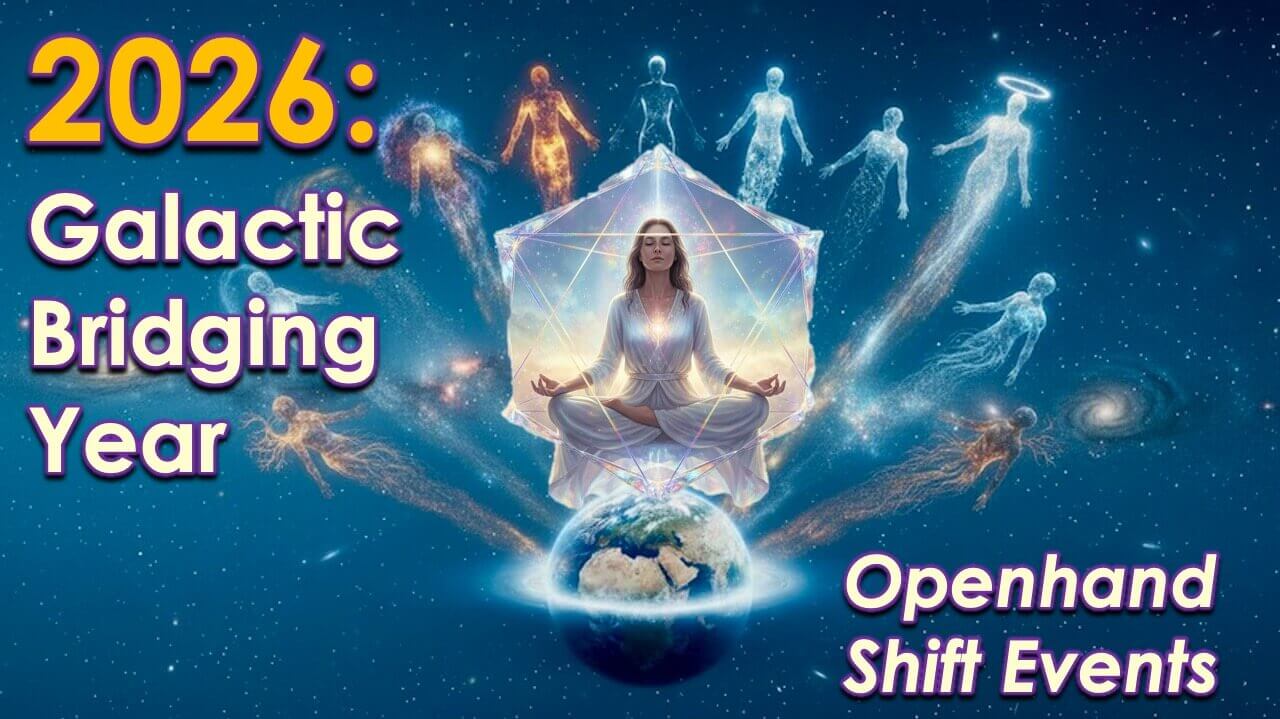 Check Latest EVENTS 2026
Check Latest EVENTS 2026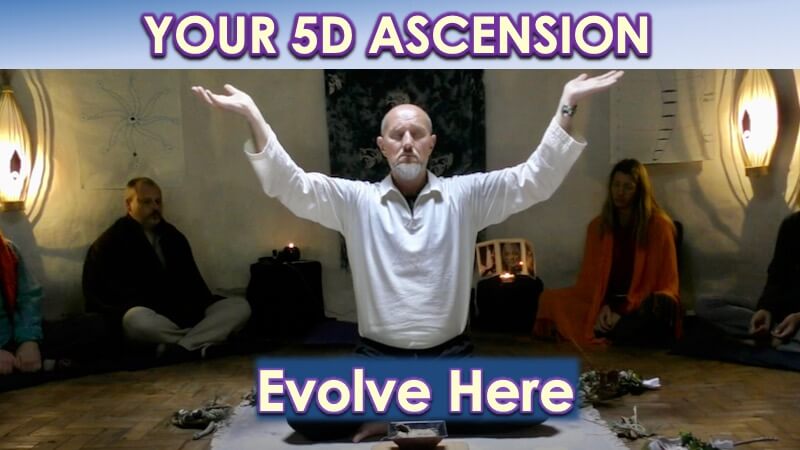 Openhand 5D Ascension Program
Openhand 5D Ascension Program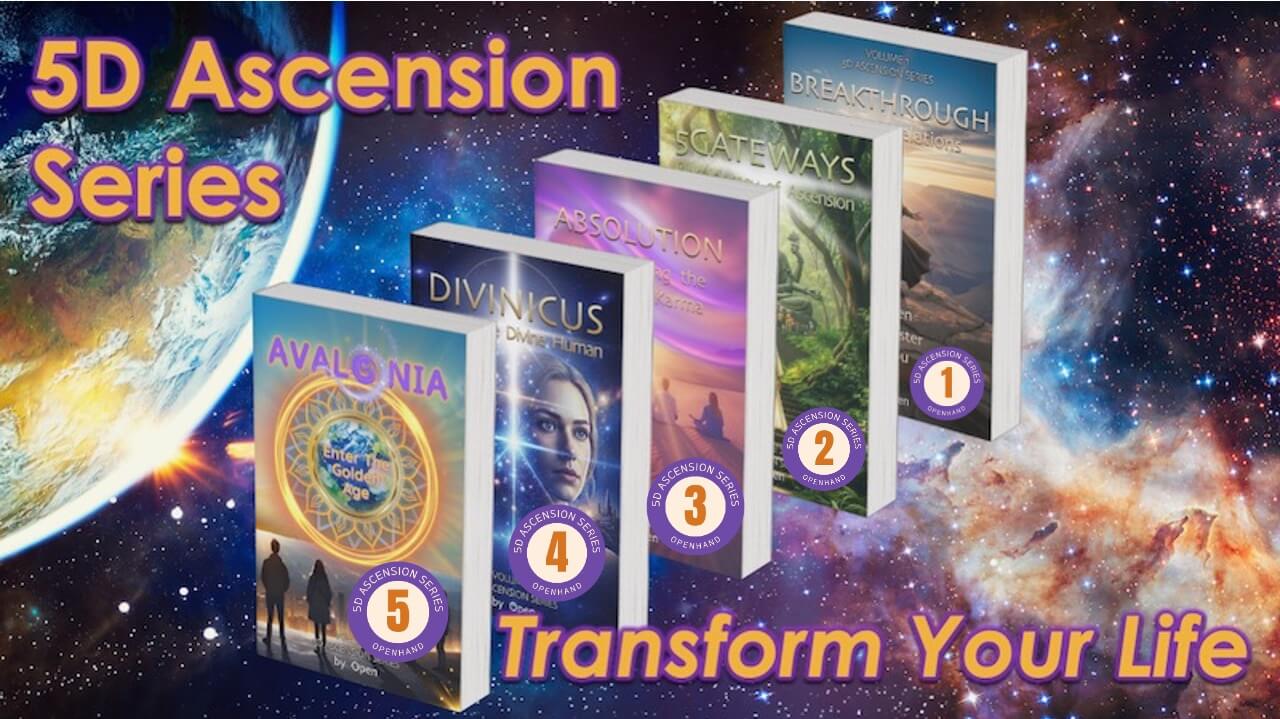 Transform Your Consciousness, uplift your life, enter Golden Age.
Transform Your Consciousness, uplift your life, enter Golden Age.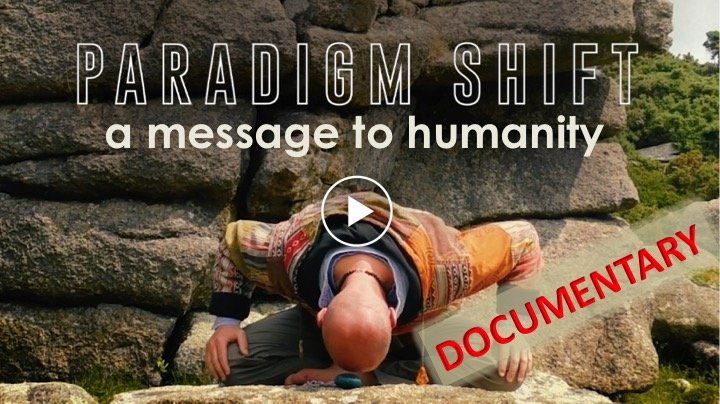
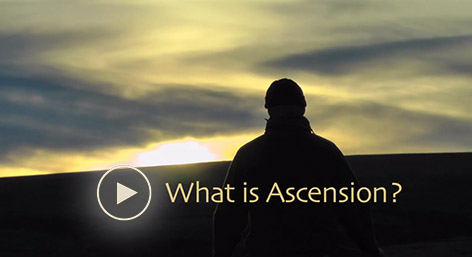
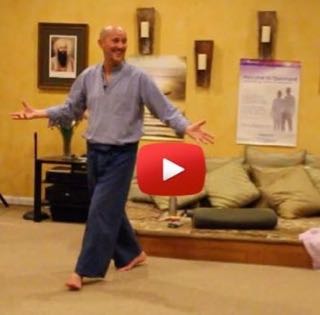 Break through Your Tightness
Break through Your Tightness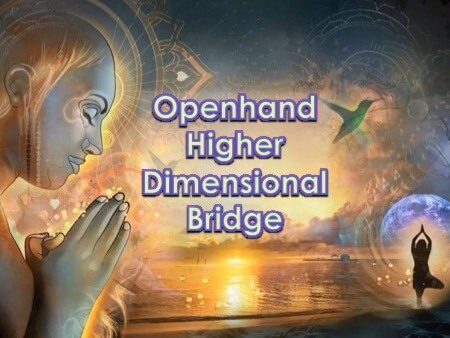


Add new comment